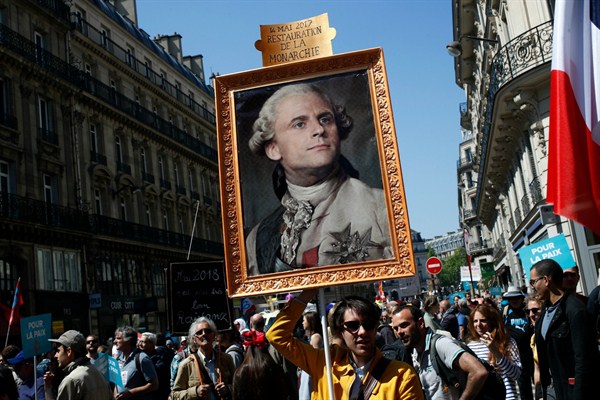On Saturday, thousands of demonstrators marched in Paris to express their disapproval of French President Emmanuel Macron on the one-year anniversary of his election. Macron has wasted little time following through on his campaign promises of economic and fiscal reforms. But his efforts to overhaul France’s labor regulations as well as his willingness to use extraordinary executive powers to push through his agenda have led critics to call him authoritarian and the “president of the rich.” In an email interview, George Ross, distinguished Jean Monnet Chair and visiting professor of political science at the University of Montreal-McGill Center for Excellence on the European Union, discusses Macron’s plans for reform, his chances for success and the implications for France’s role in EU politics.
World Politics Review: What are the major structural reforms Macron has implemented or has promised to implement, and what specifically are they designed to remedy in terms of France’s economy?
George Ross: To begin with the big picture, Macron is an economic liberal who believes in clearing out market paths by deregulating and providing new incentives for market actors to gain greater wealth. He has claimed that these moves will be accompanied by new “flexicurity”—job flexibility plus social security—for workers. His emphasis, at least so far, has been more on “flexibilizing” than on “securitizing,” leading to accusations that he is a “president of the rich.”

